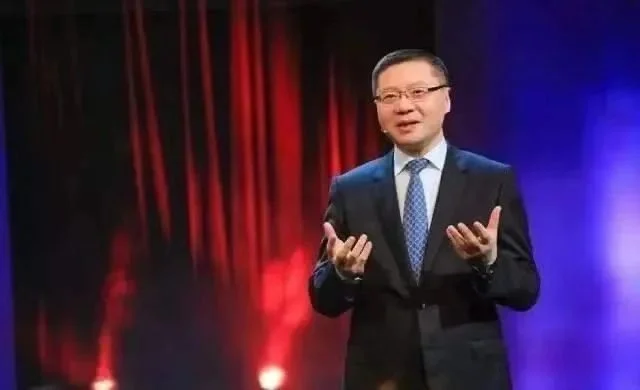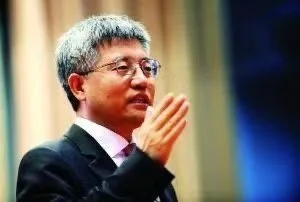Zhang Weiying destroyed Zhang Weiwei's self-confidence
Philosophy Business School
Zhang Weiwei, a Fudan professor and Internet celebrity scholar, raised his arms and shouted, "China shocks the world and touches the world", and "There is no reason for Chinese people not to be confident."
Zhang Weiwei said domineeringly: We want to "establish rules" for Americans and let them get used to our strength. Zhang Weiwei also said that we should enlighten the West, not our public knowledge to enlighten China
Contrary to Zhang Weiwei's view, Zhang Weiying, a professor and famous economist at Peking University, believes that China has not undergone real enlightenment. Enlightenment is a "half-pull" project in China, that is, a "carry rice". Chinese people are very vague about basic rights and freedoms.
Zhang Weiwei likes to talk about the Chinese model most, clearly pointed out that "the rising China is redefining the meaning of modernization", which is "transcending the Western model" and "realizing the rise of a 'civilized country' that overlaps 5,000 years of civilization and modern countries".
Zhang Weiwei emphasizes the uniqueness of the Chinese model in China's economic miracle of reform and opening up; Zhang Weiying believes that the Chinese model should not be superstitious, and "the direction and principles of China's development are not unique."
Zhang Weiying said in her graduation speech at Peking University in 2017 that over the past 30 years, China's economy has made remarkable achievements. This achievement is based on the technology accumulated by inventions and creations in the Western world over the past 300 years, and every important technology and product that supports China's rapid economic growth is sent by others. Obviously, it was not invented by China itself. China is just a arbitrage, not an innovator.
Zhang Weiwei or Zhang Weiying, who do you believe? This is a problem.
Professor Zhang Weiying has long adhered to the free market theory, which has a clear impact on China's social reform and social concepts. Many of his views and predictions have been proved by facts. He dares to tell the truth, with a sense of China's unique problems, and worries about where China is going.
On the road of many economists to politics, Mr. Zhang Weiying still insists on being an honest educator and tirelessly popularizes the common sense of economics. He believes that "changing ideas is changing the world!"
Zhang Weiying is a humanist and always believes that the power of ideas when conquering the world is stronger than swords. He insisted that the Enlightenment was not over and emphasized the power of ideas.
Zhang Weiying said so.
I have been thinking about a question for the past few years, why do human beings make mistakes? The basic conclusion I came to is two reasons. The first reason is because of our ignorance, and the second reason is because we are shameless.
Good intentions do bad things are mistakes made by ignorance and ignorance of the consequences of taking certain actions. There are also a large number of bad intentions who do bad things, that is, acts caused by shamelessness, such as the burning of books by the First Emperor of Qin and cheating Confucianism. And I would like to remind you that there are many disasters caused by the ignorance of the majority and the shamelessness of the few in human history.
For example, in the Boxer Rebellion, they thought they could be invulnerable after drinking divine water. To the Empress Dowager Cixi later, she contained both ignorance and shamelessness. She used the Boxer Movement to strengthen her own rule. There are also so many pompous, falsely reported and amazing acre yields in history, which is not only ignorant, but also shameless.
It is difficult for us to imagine why so many smart scholars and politicians can believe that centralized planning organs can tell the whole society what should be produced, how to produce, for whom, and how much price should be set? Those people are convinced. What you know is what you don't know and think you know, which leads to our disasters.
In particular, I would like to remind you that the theoretical basis of planned economy at that time came not only from politicians, but also from economists.
Let's think about it carefully. The planning agency needs to collect a lot of information. How to count the demand of the iPad when it is not produced?
There are a lot of things done now, and we really don't understand what we are doing.
For example, until the early 19th century, European doctors and sociologists called on countries to cut down trees to improve public health. Why? According to scientists' research, many infectious diseases are transmitted by trees-induced flies and mosquitoes. After cutting down the trees, flies and mosquitoes have nowhere to stay, and hygiene can be improved. This is actually an absurd suggestion made by scientists.
Look at us, this problem is more serious. There are so many projects, this project and that project, such as innovation engineering, soft science and hard science. We think that the creation of science and the development of independent intellectual property rights can be designed like engineers, which is itself a manifestation of ignorance.
The general meaning is that if we recognize the a lot of ignorance of human beings themselves, the solutions to institutional problems may have different ideas. If we think we know a lot and think we are very smart, we are actually spending a lot of time wasting on unanswered questions.
What is the best policy in the case of ignorance? Respond to all changes with constant changes, don't toss around so much. Sometimes you can see the economy problematic, release a lot of water, and sometimes to watch inflation come and smoke, all of which bring huge costs.
Let's take a look at industrial policy. Many government departments still believe that the government can know what the core industry and the leading industry are in the future and how we should develop.
Historically, we have made too many mistakes in this process. In fact, we don't know what the core leading industry will be in the future. We thought we knew that according to Lao Tzu, this was a disease.
Why a market economy? In fact, it is very simple. A market economy can avoid human disasters caused by the combination of the ignorance of the majority and the shamelessness of the minority.
There is a gap between the rich and the poor in the market economy, but in the case of a market economy, except for earthquakes, people can be killed, and people will not be killed by food shortages.
A market economy can actually reduce a lot of ignorance. In the market, knowledge and accurate judgment of the future determine whether they win or lose, which gives entrepreneurs an incentive to reduce their ignorance. Market is the process of continuous exploration and discovery by entrepreneurs.
The market economy also prevents our behavior from harming others. In the market, you seek your own interests. First of all, you should create value for others, consumers, and create value for customers. That's why we need a market economy.
How can I guarantee that I didn't say that because of my ignorance? The only way to solve this problem is not to say that you are right, need competition, and freedom of thought.
So our hope lies in our future. If we can have freedom, and if we can compete, we will become less ignorant and shameless


